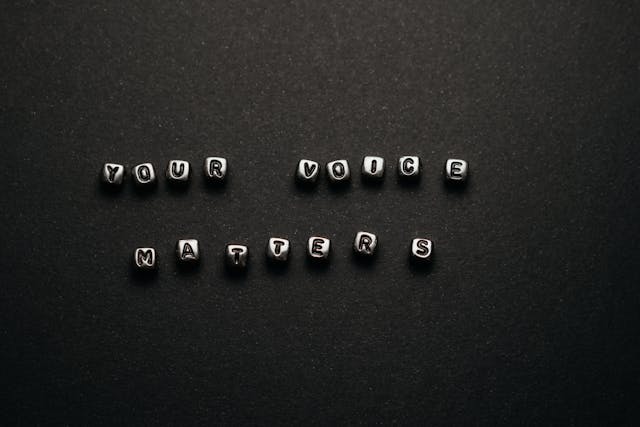Self-advocacy is one of the five core competencies we focus on in our Pre-Employment Transitions Services (Pre-ETS) curriculum.
When people hear the word self-advocacy, they often picture a squeaky wheel, someone who pushes back, makes noise, and always seems to be asking for something. But the truth is, self-advocacy isn’t about being loud. It’s about being clear. And you can’t build strong leaders without a solid understanding of self-advocacy.
Sure, we can build workers. We can teach people to show up, clock in, complete tasks, and follow directions. But that’s not enough. Workers who don’t know how to speak up for their needs aren’t growing. They aren’t advancing. And more often than not, they’re easier to replace. That’s because they haven’t been taught to bring their full voice and value to the table.
Let’s be clear about what self-advocacy is not:
- Being bossy
- Arguing to argue
- Disrespecting authority
- Demanding special treatment
- Being rude, rebellious, or entitled
- Being selfish
- A guarantee that others will agree with you
- Easy
Self-advocacy is often brushed off as a soft skill, something nice to have but not essential. It gets left behind in favor of more “practical” instruction like job applications and interview prep. But self-advocacy isn’t fluff. It’s a core life skill. It shapes how someone shows up in every environment, not just in the workplace but in relationships, community spaces, and personal decision-making.
And here’s the thing: it doesn’t compete with other soft skills. It strengthens them.
The top three soft skills people talk about, communication, teamwork, and adaptability, are all made stronger when someone knows how to advocate for themselves.
Self-advocacy is communication in action. When someone learns how to speak up for themselves, ask for help, say no when needed, and explain what’s going on without shutting down? That’s communication. It’s clear. It’s confident. It’s useful.
Self-advocates also tend to be great teammates. They don’t just sit back and hope everything works out. They participate. They speak up without steamrolling other people. They respect boundaries because they’ve learned to set their own.
Self-advocates don’t fall apart when things change, as they always do. And when something changes, which it always does, they don’t freeze. They figure it out. They ask questions, get what they need, and adjust. That’s real adaptability, not just going with the flow but actively navigating the current.
In my work, I’ve seen how powerful this can be. I’ve watched students grow into leaders because they were given the space to use their voices, whether on stage for a presentation or simply voicing an opinion on which educational game we were playing that day. Once someone realizes that their voice matters, everything else changes. They walk taller. They stop second-guessing themselves. They take ownership of their path. They stop shrinking and start leading.
This isn’t about turning everyone into public speakers or extroverts. It’s about helping people understand that they are allowed to speak up, that their needs and goals are valid, and that their opinions carry weight. When people believe this, they start showing up completely differently.
We cannot continue treating self-advocacy like extra credit. It’s not a bonus skill to squeeze in at the end of a lesson. It’s the foundation. If we want to raise leaders, not just compliant workers, we must make room for people to speak up and step in.
Let’s teach them how to do both.
– Alexandra McClain, Director of Fundraising & Transitions Educator, 5/15/2025



